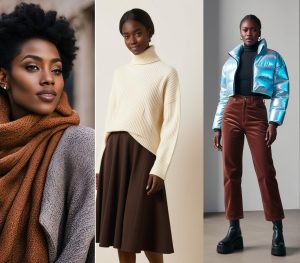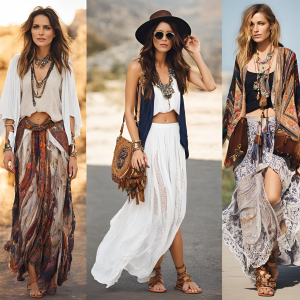Bespoke in Fashion
Definition: In fashion, bespoke refers to clothing that is custom-made to fit the individual client’s measurements and specifications. The term is often associated with tailored garments, particularly suits, that are crafted from scratch rather than altered from a pre-existing pattern. Bespoke fashion emphasizes quality craftsmanship, premium materials, and a personalized approach to design.
History of Bespoke Fashion
- Origins in Tailoring (17th – 19th Century):
- The term “bespoke” comes from the verb “bespeak,” meaning to order or arrange in advance. Its origins can be traced back to the 17th century in England, particularly in Savile Row, a street in London known for its high-quality tailoring.
- Initially, bespoke tailoring was a service provided to wealthy individuals, especially gentlemen who desired unique suits that reflected their personal style and fit perfectly. The practice of custom tailoring became more formalized during the 19th century, with tailors establishing shops specifically for bespoke services.
- The Rise of Savile Row (18th – 19th Century):
- Savile Row gained its reputation as the heart of bespoke tailoring in London. Renowned tailors like Anderson & Sheppard and Huntsman became synonymous with bespoke craftsmanship. Their attention to detail, expertise, and high standards attracted aristocrats and the affluent.
- The bespoke suit became a symbol of status and sophistication, with clients often involved in the process, selecting fabrics, styles, and detailing. This practice solidified the bespoke tailor’s role as both artist and craftsman.
- 20th Century and Modernization:
- The 20th century saw a shift in fashion, with ready-to-wear garments becoming more popular due to increased industrialization and changes in consumer behavior. However, bespoke tailoring maintained its prestige and continued to attract a dedicated clientele.
- Notable figures, including Winston Churchill and James Bond, popularized bespoke suits in popular culture, showcasing the allure of custom tailoring. The demand for personalized garments remained strong, especially among celebrities and high-profile individuals.
- Bespoke Fashion Today:
- In recent years, bespoke fashion has experienced a renaissance. With the rise of individuality and self-expression in fashion, more people seek personalized garments that reflect their unique tastes.
- The evolution of technology has also influenced bespoke tailoring. While traditional methods remain essential, advancements in digital measurement tools and online platforms have made bespoke services more accessible to a broader audience.
- Brands and tailors now offer bespoke options not only for suits but also for various garments, including shirts, outerwear, and accessories, expanding the concept of bespoke fashion.
Style Details of Bespoke Fashion
- Craftsmanship:
- Bespoke garments are characterized by their meticulous craftsmanship. Each piece is hand-cut and sewn by skilled artisans, ensuring high-quality construction and attention to detail.
- Tailors often employ techniques such as canvas construction, hand-stitched lapels, and custom linings to enhance the durability and fit of the garment.
- Customization:
- Clients have the opportunity to personalize various aspects of their garments, including:
- Fabrics: Choosing from a wide selection of luxurious materials such as wool, silk, cotton, and linen.
- Styles: Deciding on lapel types, pocket placements, button styles, and other design elements.
- Fit: Customizing measurements for a perfect fit, accommodating individual body shapes and preferences.
- Clients have the opportunity to personalize various aspects of their garments, including:
- Fit and Comfort:
- The hallmark of bespoke fashion is the perfect fit. A bespoke suit is tailored to the client’s body, ensuring comfort and mobility. Multiple fittings are typically scheduled to refine the garment, allowing for adjustments based on the client’s feedback.
- Types of Bespoke Garments:
- While bespoke suits are the most well-known, the concept extends to various types of clothing, including:
- Bespoke shirts: Custom-made shirts tailored to fit the wearer’s body shape and style preferences.
- Bespoke outerwear: Jackets, coats, and trench coats made to measure, often incorporating unique details.
- Bespoke trousers: Custom pants that complement the bespoke jacket, ensuring a cohesive look.
- While bespoke suits are the most well-known, the concept extends to various types of clothing, including:
- Bespoke vs. Made-to-Measure:
- It is essential to differentiate between bespoke and made-to-measure. While both offer customization, bespoke garments are crafted from scratch with individual measurements and design choices, whereas made-to-measure garments are based on pre-existing patterns adjusted to fit the client.



